He stated that his understanding of the concept of “blessing” is “approval, permission, or even a commission for a certain type of action and mission.”
Imparting blessings upon a same-sex couple and couples in “irregular situations of marriage” is therefore understood as “permission to sin” and a way of “normalizing” the lifestyle of practicing homosexuality, Archbishop Anyolo said.
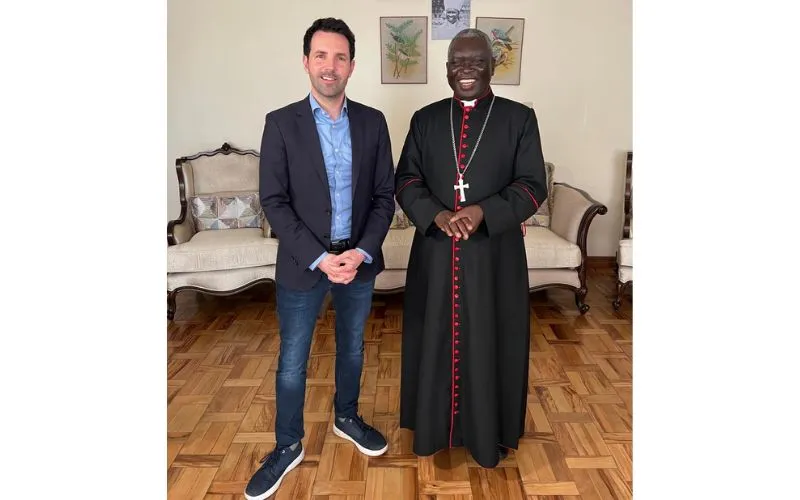 Credit: EWTN News
Credit: EWTN News
For him, “The notion of blessing same-sex couples, or irregular unions, can be perceived as legalizing these relationships, which the Church has no authority to do in faithfulness to the Gospel and the institution of marriage.”
“In the light of God’s mercy, the Church imparts her blessing to individual persons struggling with sin and strive to do the will of God, determined to conform their lives to Church’s teaching. This is done primarily in the sacrament of Penance and Reconciliation,” Archbishop Anyolo stated, adding, “Such blessings are not only allowed but strongly encouraged.”
(Story continues below)
In his interview with Archbishop Maurice Muhatia Makumba of Kenya’s Catholic Archdiocese of Kisumu Colm Flyn sought to know the Archbishop’s reaction to Fiducia Supplicans.
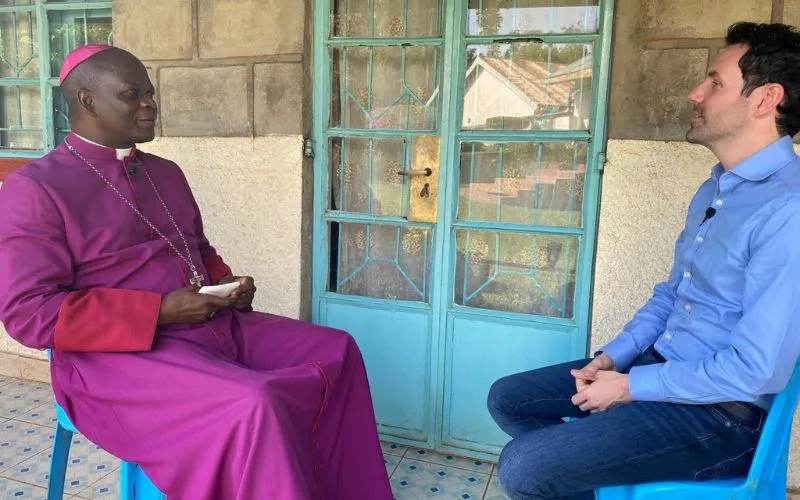 Archbishop Maurice Muhatia Makumba of Kenya’s Catholic Archdiocese of Kisumu interviewed by EWTN's Colm Flyn. Credit: EWTN News
Archbishop Maurice Muhatia Makumba of Kenya’s Catholic Archdiocese of Kisumu interviewed by EWTN's Colm Flyn. Credit: EWTN News
“My reaction was to intensify the catechesis on marriage,” Archbishop Muhatia said.
Asked weather he would allow the Clergy in his Metropolitan See to impart blessings upon persons in same-sex unions seeking them, the Kenyan Catholic Archbishop said that homosexual behaviour “is repugnant to the people” and that those in same-sex unions “would not” seek blessings from the Clergy.
In 2023 the Kenyan government proposed the Family Protection Act, seeking to strengthen traditional family values by defining the family strictly as a union between a man and a woman.
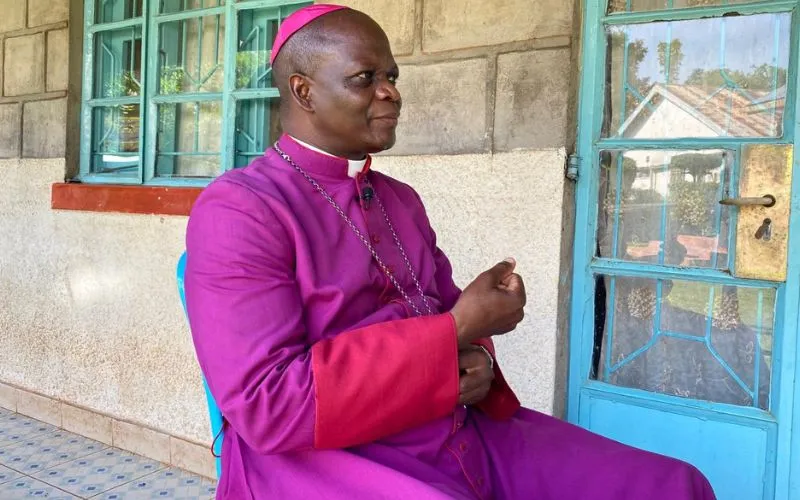 Credit: EWTN News
Credit: EWTN News
The Act explicitly prohibits same-sex marriages and relationships. It criminalizes homosexual acts, imposing penalties including life imprisonment and even the death penalty for what it terms aggravated cases.
Asked to weigh in on the Act, Archbishop Muhatia said the Church would never support criminalization of “people's behavior.”
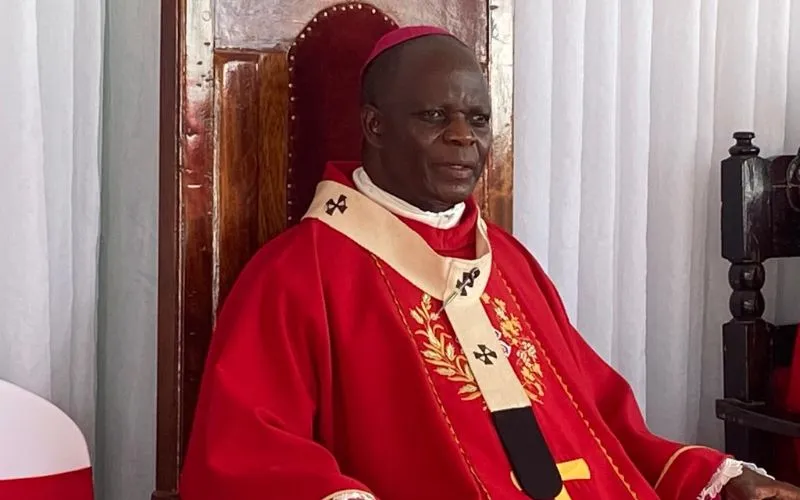 Credit: EWTN News
Credit: EWTN News
“We will protect the values of society and the values of the church in the teaching on marriage. But I don't think we would go for criminalization of people because they behave this way or that way. That can be counterproductive,” the Local Ordinary of Kisumu told Colm Flyn in the interview that was published June 26.
Also speaking to Colm Flyn, Bishop Cleophas Oseso Tuka of the Catholic Diocese of Nakuru in Kenya warned that homosexuality is being imposed on Kenyans, with people now being forced to recognize the same-sex unions as normal.
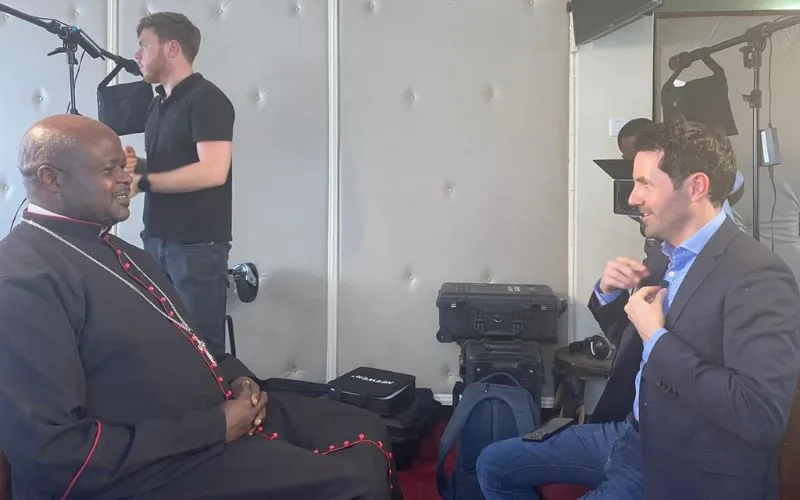 Bishop Cleophas Oseso Tuka of the Catholic Diocese of Nakuru interviewed by EWTN's Colm Flyn. Credit: EWTN News
Bishop Cleophas Oseso Tuka of the Catholic Diocese of Nakuru interviewed by EWTN's Colm Flyn. Credit: EWTN News
“There are those saying, yes, we belong to the gay community. But there are instances where they want to bring it with a bit of force and want to impose it onto everyone else, that you have to accept this as a way of living today even when in most of our communities it is an abomination,” Bishop Oseso said.
For the Kenyan Catholic Bishop, homosexuality is “still a very hot issue” that he says needs to be discussed with a lot of care “so that we don't lose our identity as Church. Otherwise, we are just going to be like any other NGO, and not be a Church.”
Agnes Aineah is a Kenyan journalist with a background in digital and newspaper reporting. She holds a Master of Arts in Digital Journalism from the Aga Khan University, Graduate School of Media and Communications and a Bachelor's Degree in Linguistics, Media and Communications from Kenya's Moi University. Agnes currently serves as a journalist for ACI Africa.
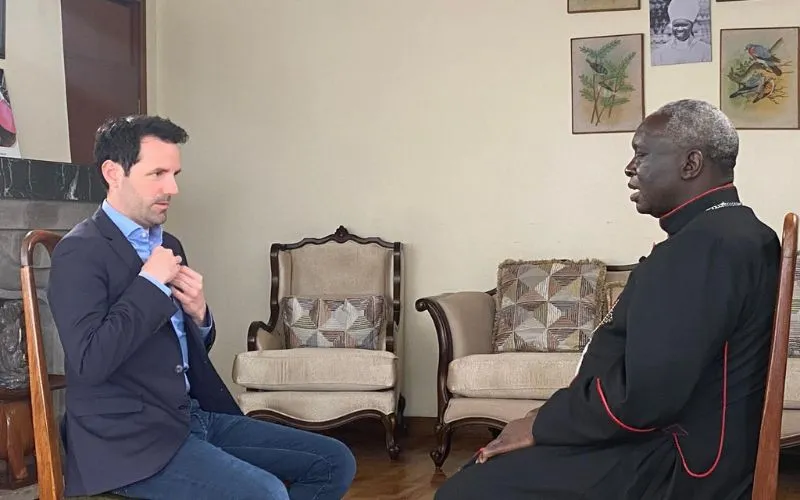 Archbishop Philip Subira Anyolo of the country’s Catholic Archdiocese of Nairobi (ADN) interviewed by EWTN’s Colm Flyn. Credit: EWTN News
Archbishop Philip Subira Anyolo of the country’s Catholic Archdiocese of Nairobi (ADN) interviewed by EWTN’s Colm Flyn. Credit: EWTN News


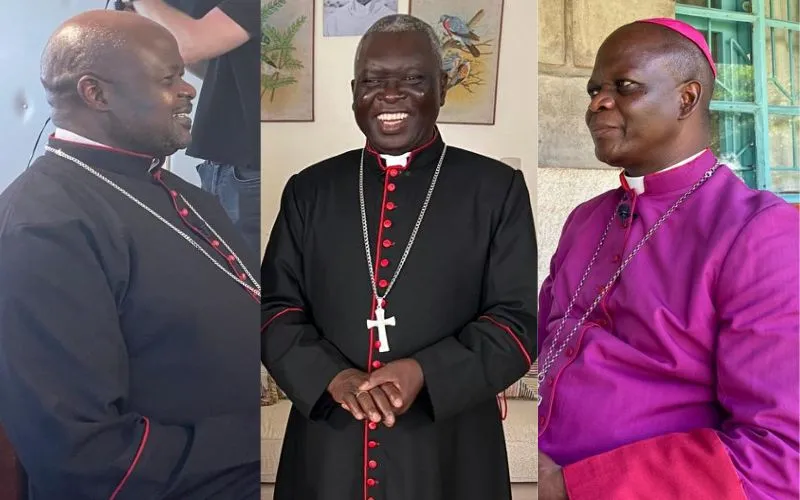
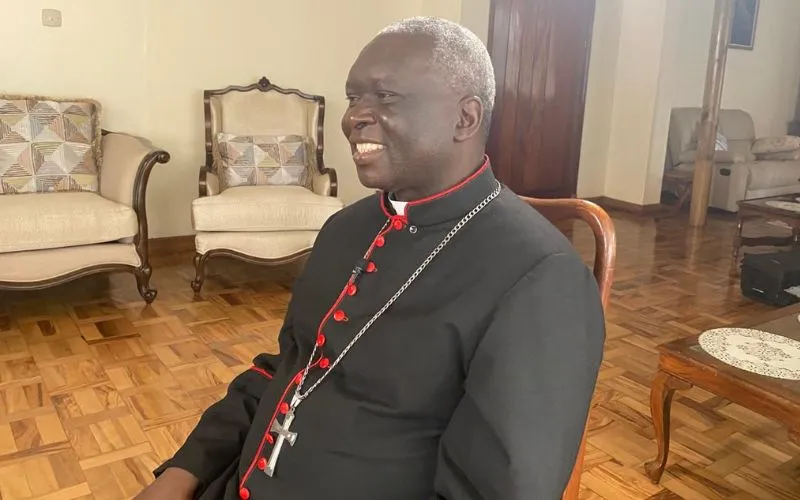 Credit: EWTN News
Credit: EWTN News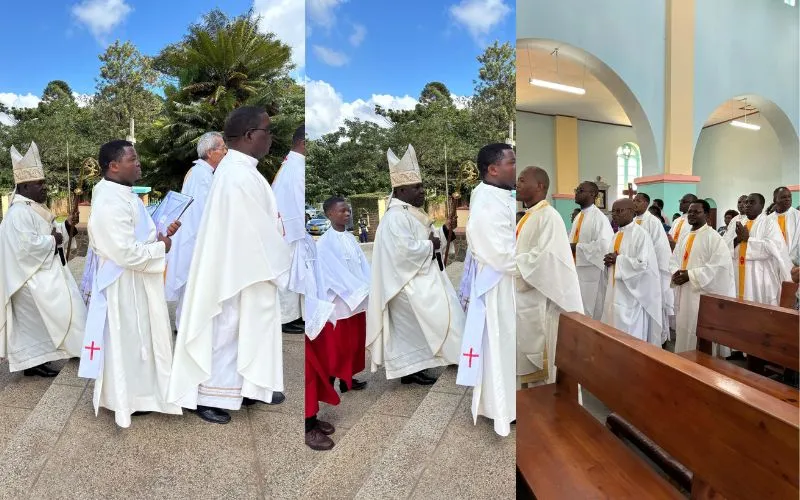
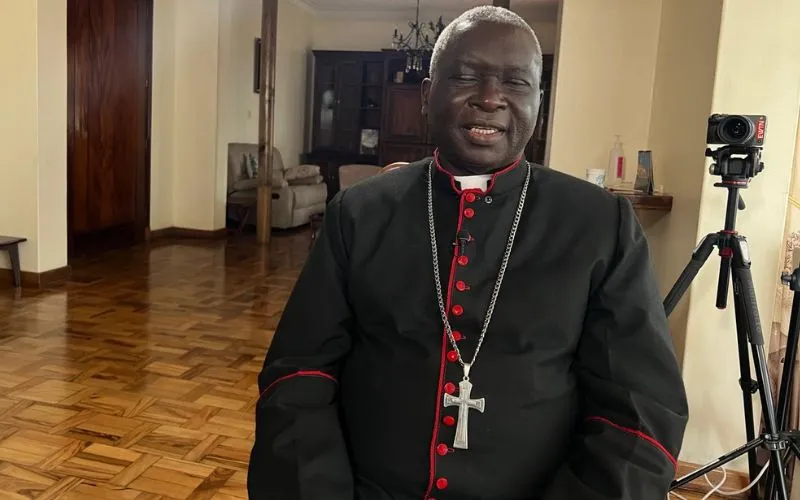 Credit: EWTN News
Credit: EWTN News Credit: EWTN News
Credit: EWTN News Archbishop Maurice Muhatia Makumba of Kenya’s Catholic Archdiocese of Kisumu interviewed by EWTN's Colm Flyn. Credit: EWTN News
Archbishop Maurice Muhatia Makumba of Kenya’s Catholic Archdiocese of Kisumu interviewed by EWTN's Colm Flyn. Credit: EWTN News Credit: EWTN News
Credit: EWTN News Credit: EWTN News
Credit: EWTN News Bishop Cleophas Oseso Tuka of the Catholic Diocese of Nakuru interviewed by EWTN's Colm Flyn. Credit: EWTN News
Bishop Cleophas Oseso Tuka of the Catholic Diocese of Nakuru interviewed by EWTN's Colm Flyn. Credit: EWTN News


